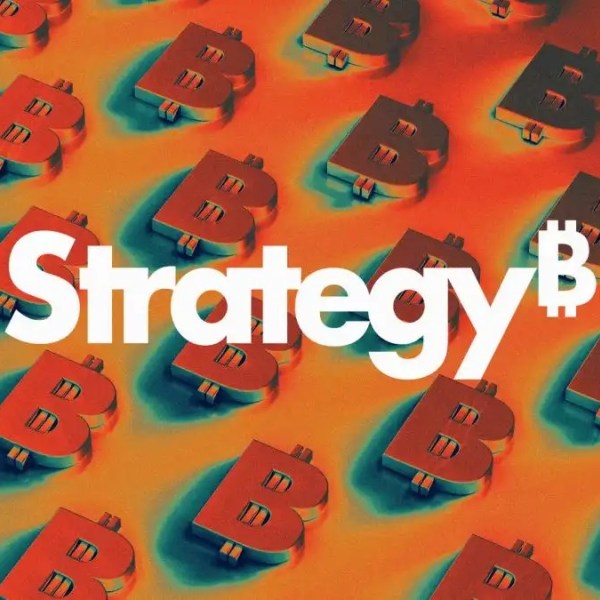SBF relaunches and seeks freedom
FTX founder SBF has been actively seeking legal appeals and a presidential pardon two years after his conviction. He has spoken out on social media to assert his innocence, blaming the company's collapse on bankruptcy administrators and judicial injustice.
FTX founder SBF is actively seeking legal appeals and a presidential pardon two years after his conviction, voicing his claims of innocence on social media and blaming the company's collapse on bankruptcy administrators and judicial injustice.
Written by: Joel Khalili
Translated by: AididiaoJP, Foresight News
SBF is fighting back. The FTX founder, two years after being convicted of fraud, is seeking legal appeals and has reactivated his social media accounts.
On September 23, 2024, the disgraced FTX founder's social media account posted for the first time in over six months, simply saying "gm" (internet slang for "good morning"). Since then, the account has been regularly updated.
The well-known SBF is currently serving a 25-year sentence in California. In November 2023, a jury in the Southern District of New York found him guilty on seven counts of fraud and conspiracy for his role in the collapse of the cryptocurrency exchange FTX.
Immediately after the verdict was announced, SBF stated his intention to appeal. Earlier this spring, he gave a few interviews to journalists from prison. Other than that, he had largely disappeared from public view. Meanwhile, the cryptocurrency industry shifted its attention elsewhere: the launch of US bitcoin exchange-traded funds, the meme coin gold rush, discussions about national bitcoin reserves, and the prospect of a more relaxed regulatory environment under President Trump.
However, since September, SBF's social media account has once again drawn attention (even though he cannot access the internet in prison, it is reportedly managed by friends on his behalf). These posts criticize the FTX bankruptcy estate administrators and focus on refuting certain claims about FTX's financial situation at the time of its collapse, insisting that customer funds were never lost but merely trapped in illiquid assets. SBF also gave an interview to Mother Jones magazine from prison, in which he maintained essentially the same views in the October issue.
His mother, law professor Barbara Fried, recently launched a Substack column. The only post published at the end of October is a 65-page paper titled "The Trial of Sam Bankman-Fried," arguing that her son neither committed fraud nor received a fair trial.
Bankman-Fried's representatives confirmed that Barbara wrote the article, but said they were unaware of the social media posts and did not respond to further requests for comment.
SBF's reappearance seems to be a two-pronged strategy for release: pursuing formal appeals in court while seeking public sympathy in the court of public opinion.
Former prosecutors have pointed out that public opinion about SBF will not affect the outcome of the appeal, but it may influence his efforts to seek a presidential pardon from Trump. Since returning to the White House in January, Trump has pardoned several crypto industry leaders convicted of white-collar crimes.
This is clearly a PR campaign, said Joshua Naftalis, a former prosecutor and now a partner at Pallas Partners law firm, calling it a strategy that leaves no stone unturned.
A White House spokesperson told WIRED that SBF has not yet submitted a formal pardon application and said they would not publicly discuss speculation about sensitive topics such as pardons.
The core argument of the appeal is that the trial jury "only saw one side of the story" because presiding Judge Lewis Kaplan's rulings prevented the defense from submitting evidence that could have weakened the prosecution's case.
SBF's lawyers wrote in their January appeal that the judge favored the prosecution at every stage, resulting in a fundamentally unfair trial: the district court allowed the government to present false allegations, withheld contrary evidence from the jury, misdirected the application of the law, and essentially steered the jury toward a guilty verdict.
On November 4, SBF's lawyer Alexandra Shapiro (who also represents Sean "Diddy" Combs and entrepreneur Charlie Javice in their appeals) presented these arguments to a panel of the Second Circuit Court of Appeals. According to reports, the judges expressed skepticism about the claim of an unfair trial, with one noting that the section criticizing Judge Kaplan seemed longer than the case itself.
Columbia Law School professor and former federal prosecutor Daniel Richman analyzed that the lawyers must have made a professional judgment in choosing to challenge the judge's discretion as one of the few viable grounds for appeal.
Both Naftalis and Richman cautioned that it is unreliable to predict the outcome of an appeal based on judges' comments during oral arguments. Generally, the success rate for criminal appeals is low (about 5%-10%), and appeals based on judicial discretion are particularly difficult to win.
Christopher LaVigne, a partner at Withers law firm, bluntly stated that it would be surprising if the verdict were overturned.
The court could rule at any time. Former prosecutors noted that after oral arguments, judges may take anywhere from a month to several years to issue a decision.
During the trial, a witness testified that SBF once said he was willing to flip a coin to decide whether to risk destroying the world if the other option was to double human welfare, so it's no wonder he now seems to be hedging his bets on multiple fronts.
Since returning to the White House, Trump has pardoned several crypto industry leaders, including Binance billionaire founder Changpeng Zhao. Trump said he erased Zhao's criminal record based on the advice of "reliable people" and claimed that the founder was actually a victim of the crypto-hostile Biden administration and had committed no crime himself (Zhao pleaded guilty in 2023 to failing to maintain effective anti-money laundering safeguards).
According to The New York Times, SBF's family ramped up lobbying for a pardon this spring. His team believes that Trump, who often claims to be a victim of "lawfare," might sympathize with the argument that SBF was deliberately made a scapegoat by prosecutors.
Recent social media posts, media interviews, and his mother's column all support this claim, insisting on SBF's innocence and blaming FTX's collapse and customer losses on greedy legal professionals who profited from a rushed bankruptcy process.
FTX bankruptcy estate spokesperson Maggie Carangelo responded that all professional fees have been reviewed by independent examiners and approved by the court.
Disclaimer: The content of this article solely reflects the author's opinion and does not represent the platform in any capacity. This article is not intended to serve as a reference for making investment decisions.
You may also like
"Myth of the 'Crypto Treasury' Shattered? Stock and Token Prices Plummet, Forcing Companies to Sell Crypto Assets"
However, as a pioneer of the "crypto treasury," Strategy has chosen to increase its holdings against the trend.

MSTR may be removed from the MSCI index, sparking conflict as the "Crypto Little Deng" faces off against the "Wall Street Old Deng" in a dramatic showdown.
The cryptocurrency community is strongly pushing back, calling for a boycott of Wall Street institutions and even shorting JPMorgan. MicroStrategy's founder also insists that the company is operational in nature rather than a fund.

Another EOS scandal: community accuses the Foundation of running away with the funds
Big spending: Where has all the foundation's money gone?

Doma mainnet goes live, 36 million domain names can be used as tradable tokens
The world's first blockchain compliant with DNS standards enables the tokenization and trading of premium exclusive domain names.

